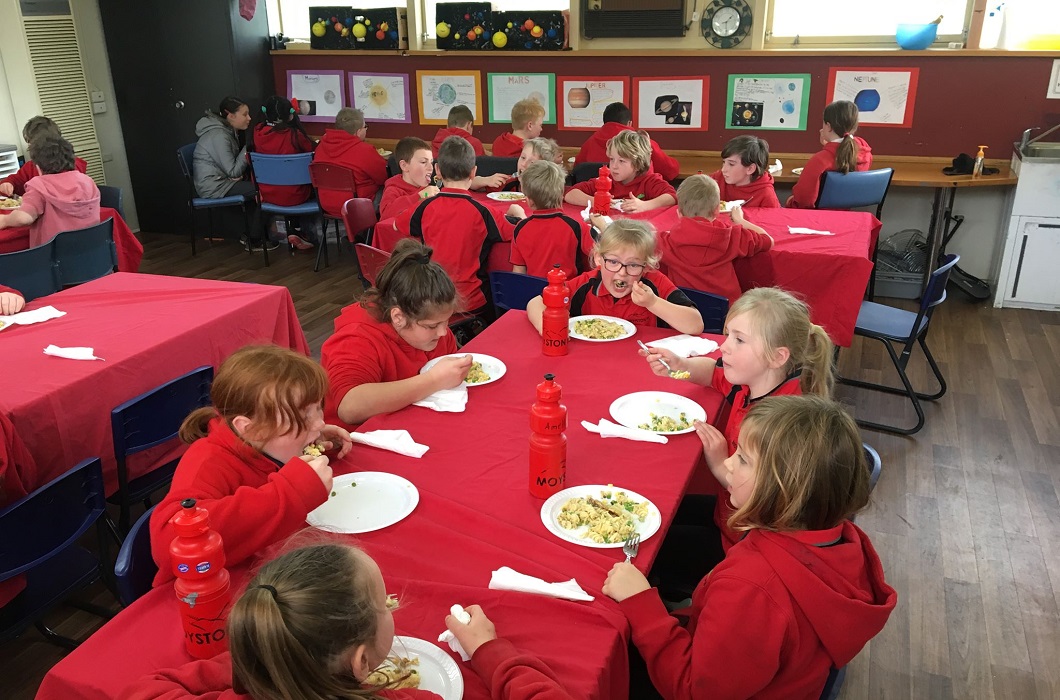As part of the Playground to Plate grants scheme, 100 Victorian primary schools in 22 local government areas received $5,000 infrastructure grants to support their delivery of kitchen garden programs.
All grant recipients were ably supported by the Stephanie Alexander Kitchen Garden Foundation (SAKGF) and all projects were underpinned by the Foundation’s Pleasurable Food Education Philosophy.
- 93 per cent of the schools that applied received a grant.
- Grant recipients comprised: 81 primary schools (28 rural and 53 metropolitan), 7 primary/secondary combined (3 rural and 4 metropolitan), 11 special (3 rural and 8 metropolitan) and 1 language (metropolitan).
- 69 schools were undertaking kitchen and/or garden activities prior to receiving the grant.
In SAKGF’s model, garden and kitchen classes are integrated within the school timetable and are run regularly, leading to a whole-school approach which assists to embed skills and experiences. The aim is to foster a love of fresh, seasonal, delicious food in the student and teacher population, by engaging them in the whole food production process from soil to stomach. Bringing schools into the SAKGF philosophy through this grant assisted them to see where support can be accessed and utilised to improve their approach.
Many schools were re-inspired by the trigger of the grant and have used it as a tool to engage with students, parents and the wider community in planning how to use the grant. In the end a range of establishment and enhancement activities were undertaken by schools, including:
- For gardens: compost system; garden tools; raised garden beds; seedlings, seeds and fruit trees; irrigation system; accessibility pathways; edible Indigenous garden; garden shed; greenhouse; worm farm and food waste collecting buckets,
- For kitchens: cooking equipment; cutlery and crockery; fitted out shipping container for kitchen use; food storage; freezer; fridge; new ovens; pantry dry goods; portable kitchen equipment for use in classrooms; blender powered by a pushbike; benches, dining tables and chairs; kitchen appliances; outdoor pizza oven.
SAKGF have found that local communities are a useful resource for supporting the kitchen garden program and ensuring it is sustainable long-term, and the benefits are mutual. They suggest approaching local businesses to seek donations of goods and services and in return offer recognition in the school newsletter or school signage - they have seen that families are more inclined to support businesses who support their school! Community support could include dry goods for the kitchen from a local grocer, seeds and seedlings from a nursery, garden tools from a hardware store or people power to help with working bees or plumbing or carpentry expertise. The best way to find out what is available in a local community is to ask.
To support schools with this, SAKGF has trialled community sessions and is developing a community engagement framework. The focus of this will be to connect the wider community to the kitchen garden program in their area, and ensure the benefits of pleasurable food education are felt and enjoyed by the wider community.
SAKGF would love to hear from you if you are interested to find out more.
Submit your story!
